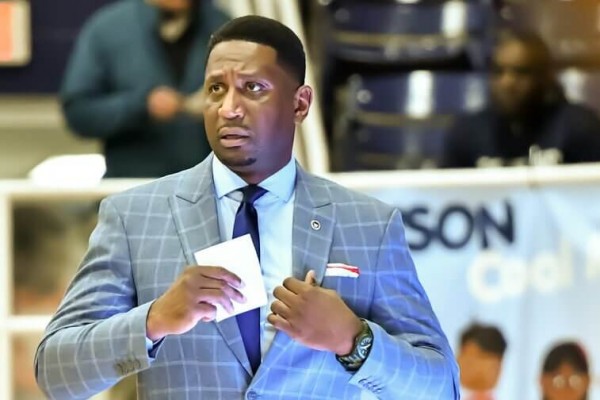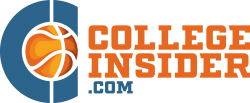Coaching in COVID
Coaching in COVID

by Kenneth Blakeney
Head Men’s Basketball Coach
Howard University
Coach has taken on new meaning in the face of the COVID-19 pandemic. Beginning in February 2020, each Coach in each sport had to develop new plans that were far more intricate than anything we could draw up in practice or in a huddle. The timeframe for deviating from our regimented activities – morning practice or training, classes and study hall, meetings and calls, evening practice, emails and more calls – was not the 3 weeks originally thought, but instead spanned months and now, almost two years.
Each time I thought we were going to define the time period of the COVID-19 virus halting our program and we were going to finally “beat this”, the finite period went into another overtime. Lockdowns turned to being outside, the virus morphed to Delta and now Omicron, and the waning numbers spiked to new positivity rates. Even the most seasoned and conditioned athletes will tire of the stresses brought on with the pandemic. I wish I could circle a date on the calendar when we will be able to resume what we all committed to do, but unfortunately, I can’t offer much certainty.
My strategy during this COVID-19 pandemic has been primarily focused on 2 things: keeping our players safe, and sharpening their intellectual acumen while maintaining mental health balance.
First, our program underwent COVID testing several times a week, limited our activity strictly to practice and classes remotely in the dorms which were largely empty. We went on offense: we masked up, we washed hands, we used trackers to monitor movement and if necessary, to perform contact tracing. We also went on our best defense against COVID: the team mandate for full vaccination came even before the Howard University campus mandate for vaccination. Our players and coaches have been boosted. This has been the saving grace.
Our program has been supported by the University and Howard University Hospital, and for that I am very grateful. To the credit of the players and the staff, we stayed within our bubble.
Second, I knew we had to tackle COVID-19 from an academic and an athletic perspective. I was encouraged that the virus had been studied and analyzed, and the vaccine development was led by a phenomenal Black woman scientist, Dr. Kizzmekia Corbett. I got vaccinated, and so did our coaches and our players. Answers were sought to questions that arose. I talked to several medical professionals about the impact of COVID and the vaccine on young bodies, on athletes, on males, on Black males. I committed to my Program to do whatever I could, to use all available levers to keep everyone safe. What resulted was our Program shutdown in January 2021 after playing only 5 games last season.
Although we largely avoided COVID on the Howard Men’s Basketball team during the 2019-2020 and 2020-2021 seasons, I regret that our team has now been hit with COVID-19 infections. Maintaining the privacy of individuals, I will only share that I, along with a number of our Coaches and players, have been impacted. This is no virus any of us wanted to contract, but we certainly did not want to catch COVID and develop symptoms while away from home. We had to cancel a few games and make our way back to Howard, figure out who was going to be around family during the holidays and reschedule practices. We are committed, as always, to coming back safely, supporting the mental health needs and preserving the opportunity for our student-athletes.
The mental impact of the COVID-19 pandemic on me has been at times very debilitating. I am secure in many ways – I’m a 50 year old man, a DC native. I have my nuclear and extended family right here, and I’m stable with my job, housing, and provisions for food, for safety, and other necessities. Yet, the isolation coupled with the uncertainty and the impact of COVID has shook me at times to my core. It has been a real challenge to connect with resources to help guide me through this time, and again, I am by all measures stable and secure. So just imagine for a moment how the pandemic is impacting those who are younger, not from here, or unstable in any way. The impact of the mental toll of the pandemic is a challenge for me to discuss, so just imagine how hard it may be for student-athletes to open up their fears and feelings.
The impact of the pandemic on 18 to 22 year old young men who are accustomed to being in a team environment and then are forced to isolate from each other while away from their families cannot be quantified nor underestimated. Our student-athletes are like many other college students who lack the life experiences to navigate the pandemic perfectly during this unprecedented situation.
I can draw on an example of navigating as an adult having grown up local to this area. For starters, I never was really a guy who hung around outside in nature. But having been forced to stay indoors during the early months of the pandemic, my family and I needed to venture out. Around where we live, other families had the same idea, and the volume of people, even distanced, made us feel unsure. Luckily, I ventured only 4 miles back to my old neighborhood where I just knew few people would be found outside during a pandemic having a picnic. Our 4 year old daughter could plan soccer and run around without restrictions.
It pains me that there has been no plan to mandate mental health counseling from any athletic conference or the NCAA, and it stresses me that there are so few minority and male counselors to deliver therapy and support to a game with a large minority population. The past few years have demonstrated so many strains on athletes, how important it is to tend to their needs and give them grace. Our Program will continue to make mental health support available.
Having been vigilant for so long and now being so impacted, there are a few things I have learned.
· Let’s compete on the court, but collaborate on COVID. It is important to share what has worked and what hasn’t during the pandemic. I’d like to discuss whether testing should be required hours before each game, and whether positive results should be disclosed to opposing teams before taking the court. When we played in situations where we didn’t test, I believe we were exposed. In turn, I can only hope that my players did not infect other players.
At the same time, let’s compete equally on the court. To other programs I say, you bring your best, I will bring my best, and the best team will win. This is not a matter of forfeiting a game and adding a loss to a team’s record – it should be rearranging schedules and working things out to play when both teams are healthy.
· Limit interactions, but increase support. Our program will beat COVID – we are vaccinated and boosted – and we will return to the court. Our pre- and post-game interactions will not be as accessible because we can’t risk the spread of the virus, especially not knowing the status of those with whom we come into contact.
· More study. Young vaccinated individuals are not expressing COVID symptoms, but they are coming up positive. At the same time, they are around and in close quarters with other players. They have no symptoms and are feeling great, and their symptoms are very mild. We need to know more about the incubation period, but I am also concerned about the impact of athletes returning to the court. The impact of COVID-19 on their bodies and the physical impact of returning to the court must be better understood.
· Have compassion. The league, the NCAA, the television personnel, the commentators, and certainly the players and coaches all need a strong dose of compassion to navigate through this situation. We are still in a pandemic. We are trying to get back to normal, but no one is volunteering to have COVID. Let’s not let our guard down and put anyone in harm's way for the sake of entertainment. We need to protect one another right now.
Moving forward, we need our version of a “build back better” plan for athletic programs as a conference and as an industry. Let’s begin with a real conversation about whether we centralize testing and protocol among the conferences to enure across NCAA Basketball .
We need the scientists to help us better understand the incubation so we can get back to playing quickly and safely. We admittingly are beyond the treacherous phase of the COVID-19 Alpha and Delta variants, when we lacked the vaccines and boosters. Now, to the vaccinated, a positive COVID designation may be more akin to a cold. We can’t continue to sideline players and coaches beyond what is absolutely necessary. If COVID is going to continue to mutate and will persist, but is not causing the hospitalization and deaths as before, is this something we continue to evolve?


